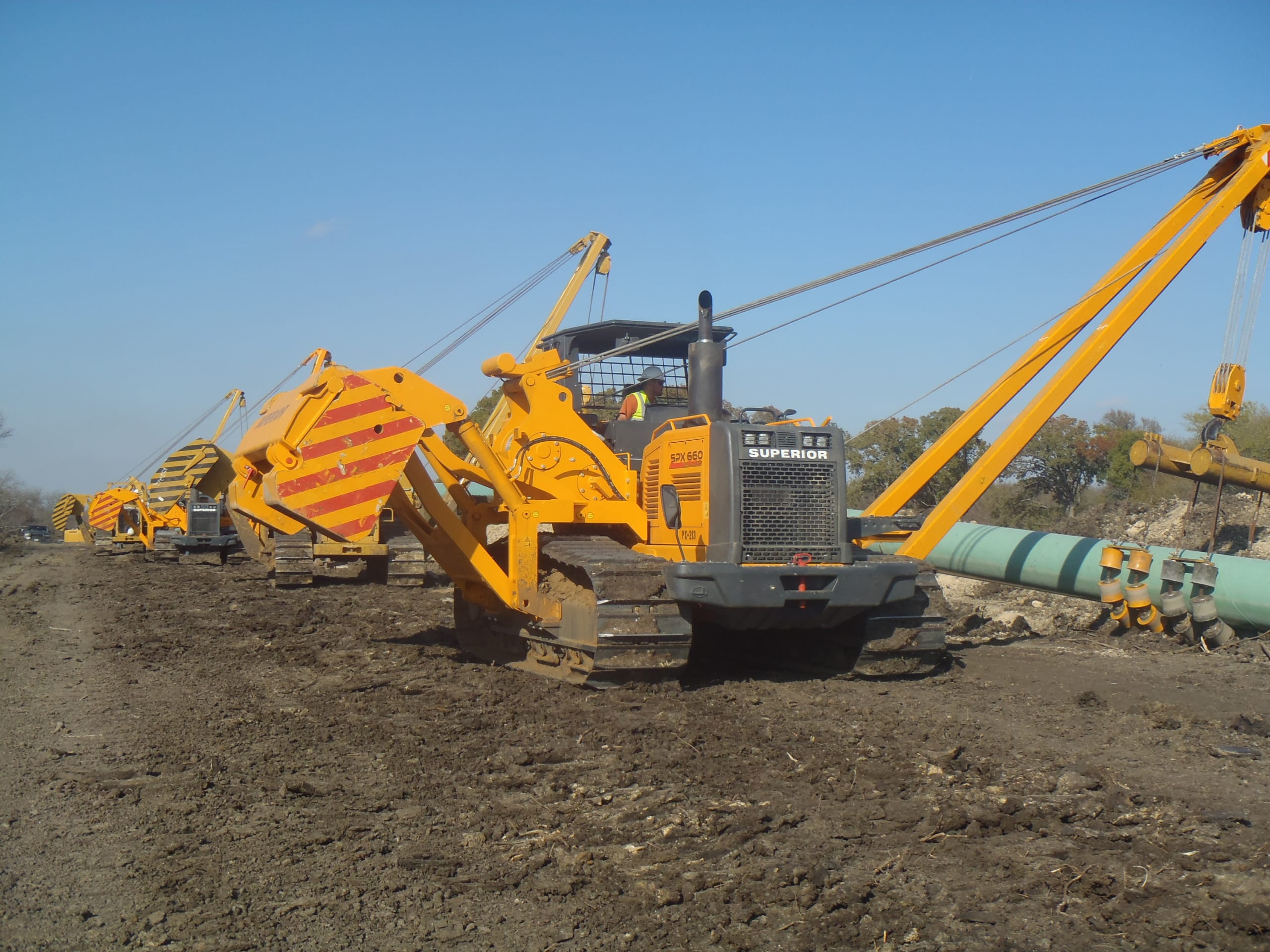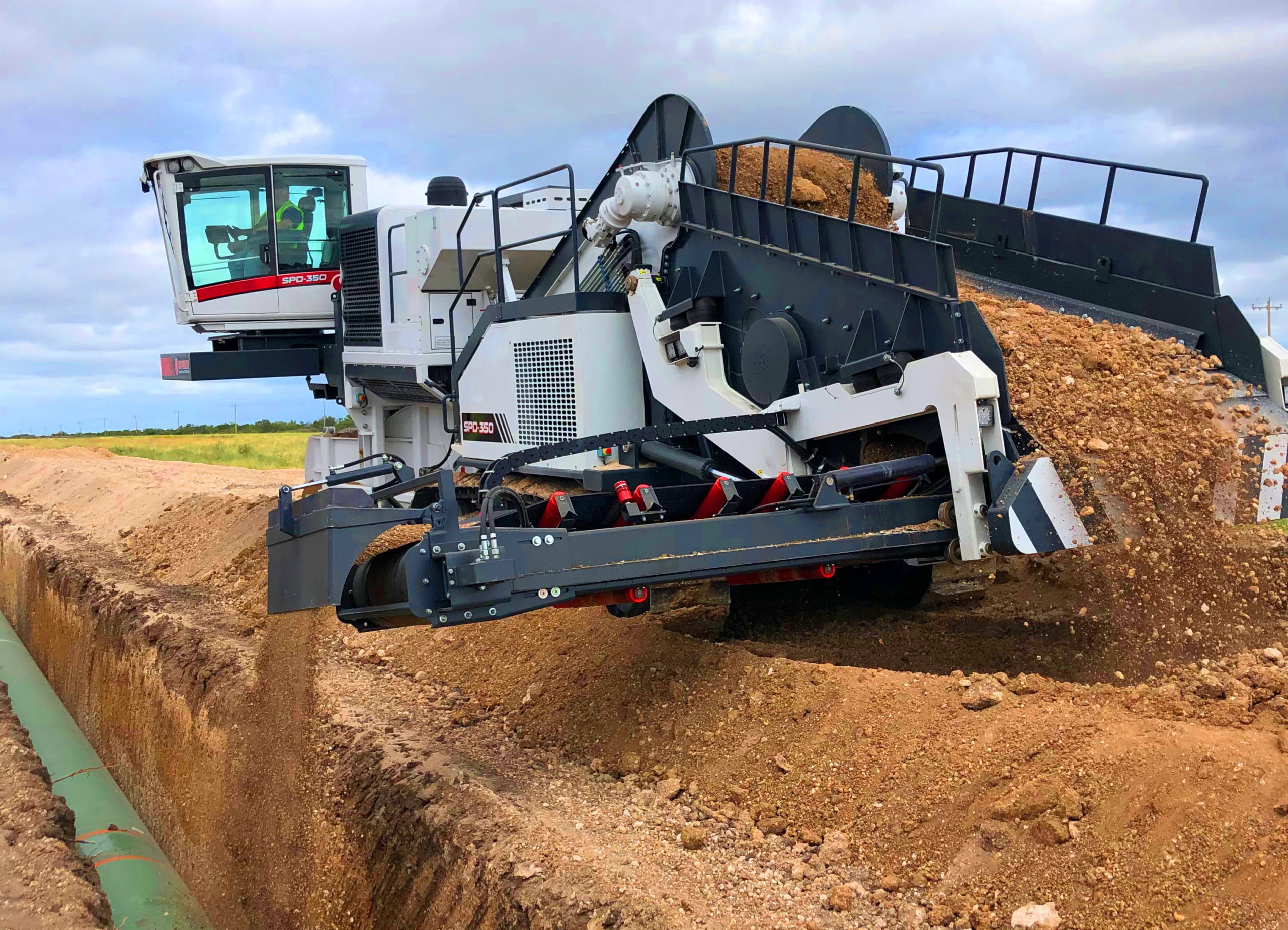A Comprehensive Guide to the Various Sorts Of Oil Field Equipment and Pipeline Equipment Available
The oil and gas market counts heavily on specific equipment for efficient extraction and transportation. Numerous kinds of equipment, from piercing rigs to tank, play crucial functions in this complicated process. Each tool offers distinctive features that add to general operational success. Comprehending these components is important for anybody involved in the sector. As the sector advances, so also do the innovations that support it. What improvements are on the horizon?

Drilling Rigs: The Foundation of Oil Exploration
Drilling rigs work as the crucial machinery in the domain name of oil expedition, making it possible for companies to gain access to hydrocarbon gets hidden deep beneath the Earth's surface. These rigs come in different kinds, including land rigs, offshore rigs, and mobile systems, each designed to operate in specific atmospheres. Outfitted with advanced modern technology, drilling rigs can penetrate geological developments with accuracy, making certain efficient source extraction. The structural stability and functional abilities of these rigs are vital, as they must stand up to severe conditions and considerable stress. In addition, the selection of a drilling rig impacts the overall project cost and timeline, making it an essential consideration for oil business seeking to optimize their exploration efforts and take full advantage of efficiency in their operations.
Pumps: Essential for Liquid Activity
In the oil extraction process, the role of pumps is substantial, promoting the motion of fluids throughout different stages of manufacturing. Pumps are necessary for moving petroleum, water, and other fluids from below ground tanks to the surface and after that with pipelines to refineries. They come in numerous types, consisting of centrifugal, favorable displacement, and completely submersible pumps, each offering details functions based upon the fluid attributes and operational needs. Centrifugal pumps are frequently made use of for their performance in high-flow applications, while favorable displacement pumps master dealing with thick fluids. The choice of pump effects overall performance, operational safety and security, and maintenance prices. Appropriate option and maintenance of pumps are vital for enhancing production and lessening downtime in oil field procedures.
Valves: Controlling Circulation and Pressure

Valves play a crucial duty in managing the flow and pressure of liquids within oil areas and pipes. Numerous kinds of valves serve distinct applications, each developed to meet details functions fundamental for effective operation - Superior Oilfield Rentals oilfield. Recognizing the characteristics and uses of these shutoffs is essential for optimizing system efficiency and safety and security
Kinds of Valves
Essential parts in oil area procedures, shutoffs play a critical role in regulating the flow and stress of liquids within pipes and devices. Different kinds of shutoffs are utilized to fulfill the diverse demands of oil and gas manufacturing. Usual kinds consist of gateway valves, which supply a straight-line circulation and marginal stress decrease; globe valves, understood for their strangling abilities; and sphere valves, identified for their fast on/off control. Furthermore, check valves prevent heartburn, while butterfly valves offer a light-weight option for controling flow. Each shutoff type is designed with details materials and configurations to hold up against the extreme conditions frequently located in oil fields, guaranteeing integrity and effectiveness in operations. Recognizing these types is critical for reliable system management.
Valve Applications and Features
While different sorts of valves serve distinctive functions, their primary applications focus on controlling circulation and pressure within oil and gas systems. Valves such as gateway, globe, and round valves manage fluid motion, ensuring peak efficiency and safety. Entrance shutoffs are typically made use of for on/off control, offering marginal flow resistance. Globe shutoffs, on the other hand, offer specific flow guideline, making them suitable for throttling applications. Sphere shutoffs are preferred for their quick operation and limited securing capabilities. Additionally, stress relief valves are essential for avoiding system overpressure, securing tools integrity. Generally, the ideal selection and application of valves improve functional performance, ensuring the reputable transportation of oil and gas via pipes and processing facilities.
Compressors: Enhancing Gas Transport
Compressors play a vital duty in the efficient transport of natural gas, guaranteeing that it relocates efficiently via pipes over lengthy ranges. These tools increase the pressure of natural gas, allowing it to conquer friction and elevation changes within the pipeline system. Furthermore, compressors help with the balancing of supply and demand, fitting changes in usage and production rates. Various types of compressors are employed in the industry, consisting of centrifugal, reciprocating, and rotating screw compressors, each offering distinctive benefits based on the operational demands. Routine maintenance of these compressors is important to make best use of performance and decrease downtime, inevitably adding to a trustworthy gas transport network. Their important great site function underscores the importance of compressors in the total oil and gas framework.
Storage Tanks: Safe and Effective Fluid Management
Reliable transportation of gas depends on numerous supporting systems, one of which is the correct administration of tank. These storage tanks play a vital role in securely consisting of fluids, ensuring that functional effectiveness is maintained while lessening environmental threats. Built from resilient products, they are made to endure high pressures and destructive elements. Appropriately sized and tactically situated, tank promote the smooth circulation of all-natural gas and various other fluids, stopping bottlenecks in supply chains. Regular upkeep and surveillance are vital to identify leaks or structural issues, advertising safety and security and compliance with governing standards. Inevitably, the efficient administration of storage tanks is critical for the general honesty and dependability of the oil and gas industry's fluid handling systems.
Pipeline Solutions: Infrastructure for Transport
Pipeline systems work as the foundation of the oil and gas market, facilitating the efficient transportation of hydrocarbons over large ranges. These systems include numerous elements, consisting of pipes, valves, pumps, and compressors, all meticulously designed to assure smooth flow. The products made use of in pipeline building, commonly steel or high-density polyethylene, are chosen for toughness and resistance to corrosion. Pipeline networks can cover throughout land and water, linking production websites to refineries and warehouse. In addition, advanced technology allows real-time tracking of flow rates and stress levels, discover here improving functional performance. The calculated placement of these pipelines decreases ecological influence while maximizing source availability, thereby playing a crucial function in meeting power demands internationally.
Safety And Security Equipment: Ensuring Worker and Environmental Security
The procedure of pipeline systems, while necessary for energy transport, also provides significant safety challenges for employees and the setting. Security devices plays a substantial duty in minimizing these risks. Individual protective tools (PPE) such as headgears, handwear covers, and non-slip shoes safeguards workers from physical risks. Additionally, gas detection systems keep an eye on for leaks, making certain that dangerous materials do not posture a risk to employees or the surrounding community. Emergency situation shutdown systems are important for swiftly stopping procedures throughout a dilemma, preventing prospective calamities. Spill control materials, consisting of absorbents and obstacles, are essential for decreasing ecological effect. Overall, purchasing comprehensive safety tools is critical for preserving functional integrity and safeguarding both employees and the environment in the oil and gas sector.

Regularly Asked Inquiries
Just how Do I Choose the Right Oil Field Equipment for My Project?
Choosing the appropriate oil field equipment entails evaluating project specs, budget restraints, and operational requirements. Think about aspects such as devices integrity, compatibility with existing systems, and the provider's reputation to ensure peak efficiency and safety and security.
What Are the Maintenance Demands for Oil Field Equipment?
Upkeep requirements for oil field equipment include regular examinations, lubrication, and timely fixings. Operators needs to additionally stick to manufacturer guidelines, screen performance metrics, and guarantee conformity with safety and security guidelines to improve long life and efficiency.

How Can I Make Certain Compliance With Environmental Regulations?
To guarantee compliance with ecological guidelines, companies should conduct normal audits, implement ideal methods, spend in training, maintain appropriate documents, and remain updated on regulations (Superior Oilfield pipeline equipment rentals). Partnership with environmental companies can additionally improve adherence to regulations
What Is the Ordinary Lifespan of Pipeline Equipment?
The average lifespan of pipeline devices typically varies from 20 to half a century, depending upon elements such as worldly top quality, ecological problems, and upkeep techniques. see here now Routine assessments can greatly affect longevity and operational efficiency.
Just how Do I Securely Move Oil Field Equipment to Remote Locations?
Carrying oil area equipment to remote locations calls for mindful planning, consisting of route assessment, protecting authorizations, utilizing appropriate automobiles, and making certain security protocols are followed. Appropriate training and interaction amongst teams are vital for effective transportation.